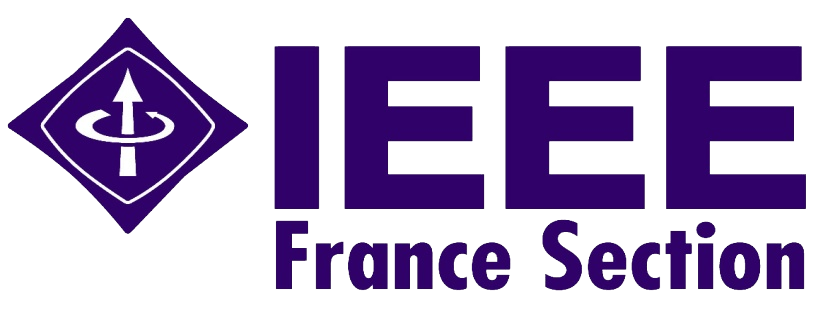Banking Processes that Benefit from Automation
Postbank, one of the leading banks in Bulgaria, has adopted RPA to streamline 20 loan administration processes. One seemingly simple task involved human employees distributing received payments for credit card debts to correct customers. Even such a simple task required a number of different checks in multiple systems. Before RPA implementation, seven employees had to spend four hours a day completing this task. The custom RPA tool based on the UiPath platform did the same 2.5 times faster without errors while handing only 5% of cases to human employees. Postbank automated other loan administration tasks, including customer data collection, report creation, fee payment processing, and gathering information from government services.
Automation can help improve employee satisfaction levels by allowing them to focus on their core duties. The competition in banking will become fiercer over the next few years as the regulations become more accommodating of innovative fintech firms and open banking is introduced. For end-to-end automation, each process must relay the output to another system so the following process can use it as input. AI and ML algorithms can use data to provide deep insights into your client’s preferences, needs, and behavior patterns. The 2021 Digital Banking Consumer Survey from PwC found that 20%-25% of consumers prefer to open a new account digitally but can’t.
High Precision and Consistency for Errors Reduction
To get the most from your banking automation, start with a detailed plan, adopt simple-but-adequate user-friendly technology, and take the time to assess the results. In the right hands, automation technology can be the most affordable but beneficial investment you ever make. Lenders rely on banking automation to increase efficiency throughout the process, including loan origination and task assignment. Adding to the processes described above, there are many more use cases for automation. Listed below are some excellent targets for automation in banking processes.
In a continued effort to ensure we offer our customers the very best in knowledge and skills, Roboyo has acquired Jolt Advantage Group. RPA bots are capable of being deployed at scale, meaning that they can meet the organization’s growing needs or respond to surges in demand without creating a backlog. We have developed a data wrapper that allows you to get the most out of your technology investment by integrating with the apps you currently use. Filter and access documents in seconds with advanced filtering options and version control. These shifts will look different depending on organizational priorities, economic factors, and customer requests. Another benefit of composable architectures is the ability to leverage emerging technologies or make changes as the market conditions shift.
From Manual to Digital: The Role of Automation in Streamlining Banking Operations
We’ve all heard the phrase “time is money.” In banking, it’s no exaggeration—wasted time results in lackluster customer service, strained staff and fewer opportunities for cross-sales. Moreover, IBM found that human error causes the loss of roughly $3.1 trillion annually in U.S. businesses. Ever wished you could improve efficiency, reduce costs, and provide scalability in operations? We’re guessing your answer is “yes.” This is all possible with intelligent automation and business… The UiPath Business Automation Platform empowers your workforce with unprecedented resilience—helping organizations thrive in dynamic economic, regulatory, and social landscapes.
- Gartner reports that 80% of finance leaders have already implemented or plan to implement RPA initiatives.
- With Artificial Intelligence at the core, Datamatics Intelligent Automation Platform helps banks to boost their productivity, end-customer experience, and competitive advantage.
- RPA in banking provides customers with the ability to automatically process payments, deposits, withdrawals, and other banking transactions without the need for manual intervention.
McKinsey predicts a second wave of automation and AI emerging in the next few years, as the latter has gained more public attention with the prevalence of generative language models and other decision-making technologies. It’s no secret that prioritizing business process improvement will make day-to-day work faster and more seamless. As a result, an estimated 98% of IT leaders say automating business processes is vital to driving countless benefits to the business. The first approach to making banking technology more efficient is through programmatic automation.
The support from robots helped UBS process over 24,000 applications in 24-hour operating mode. You’ll have to spend little to no time performing or monitoring the process. Moreover, you’ll notice fewer errors since the risk of human error is minimal when you’re using an automated system. Your employees will have more time to focus on more strategic tasks by automating the mundane ones.
RPA can take care of the low priority tasks, allowing the customer service team to focus on tasks that require a higher level of intelligence. Banks and other financial institutions need to comply with many legal and financial regulations. According to a recent report, over 70% of compliance officers believe automation tools like RPA could significantly improve the use of compliance resources.
In the post-trade space, every message is an exception to straight-through processing, increasing operational risk. Automating these requests would improve trade flow and SLA adherence, but banks lack the clean structured data needed as a bridge to downstream automation tools. Build powerful new processes with cognitive capture AI, capable of processing complex bank documents and unstructured financial data. Manual processes also make it difficult to oversee any changes and track the status of the financial close.
Major benefits of intelligent automation in finance
Throughout his career, Cem served as a tech consultant, tech buyer and tech entrepreneur. He advised enterprises on their technology decisions at McKinsey & Company and Altman Solon for more than a decade. He led technology strategy and procurement of a telco while reporting to the CEO. He has also led commercial growth of deep tech company Hypatos that reached a 7 digit annual recurring revenue and a 9 digit valuation from 0 within 2 years.
To that end, you simplify the Know Your Customer process by introducing automated verification services. Let’s look at some of the leading causes of disruption in the banking industry today, and how institutions are leveraging banking automation to combat to adapt to changes in the financial services landscape. ”The benefits of RPA are materialized in different kinds of reconciling and confirmation processes, where information is moved from one place to another or data is reconciled between two different systems. Most US banks take around days to originate and finish processing a mortgage loan.
Claims management and customer support
There is no need to completely replace existing systems while putting RPA into action. RPA’s flexibility in connecting to different platforms is one of its most valuable features. The scope of where RPA can be used within an organization is extremely broad.
Banks face challenges to keep their clients delighted, and provide a mobile banking experience that’s quick, easy to use, fully featured, secure, and routinely updated. Completing same-day funds transfers can require time-consuming manual processes. Intelligent Automation can deal with the routine elements such as checking for available funds swiftly and efficiently, only invoking human intervention for checking and compliance. For a global banking client, Roboyo created digital workers that processed data updates 60 times faster, reducing transaction times from 5 minutes to 5 seconds.
As a result, financial institutions must foster an innovation culture in which technology is used to improve existing processes and procedures for optimal efficiency. The greater industry’s adoption of digital transformation is reflected in this cultural shift toward a technology-first mindset. Automation can handle time-consuming, repetitive tasks while maintaining accuracy and quickly submitting invoices to the appropriate approving authority.
- To learn more about how Inscribe can help your organization automate processes, improve accuracy, and increase productivity with our cutting-edge platform, please reach out to schedule a personalized demo.
- We believe that intelligent automation will continue to transform the banking industry, driving innovation and growth while addressing the challenges banks face.
- With endless transactions coming in and out of the bank each day, manual processes—such as spreadsheets—only lengthen the turnaround for reconciliations and extend the time that imbalances and investigations are corrected.
- Based on predetermined thresholds, applications can be flagged and alerts generated.
Programmatic automation involves rewriting software so that automation is fixed (or programmed) into a technology provider’s system. Examples include improvements to streamline account opening, teller hold or positive pay. Rather than replace human staff and lose many institutions’ key differentiator – their relationship-first service – a strategic approach to automation aims to make work for banking staff more meaningful and impactful. Business processes like account closing, dispute tracking and rate changes are vital, but they shouldn’t monopolize internal resources like brain power, time and dollars. During the pandemic, Swiss banks like UBS used credit robots to support the credit processing staff in approving requests.
Major banks like Standard Bank, Scotiabank, and Carter Bank & Trust (CB&T) use Workfusion to save time and money. Workfusion allows companies to automate, optimize, and manage repetitive operations via its AI-powered Intelligent Automation Cloud. Staff can use RPA tools to collect information and analyze various transactions against specific validation rules through Natural Language Processing (NLP).
This paves the way for RPA software to manage complex operations, comprehend human language, identify emotions, and adjust to new information in real-time. By using intelligent process automation, a bank is able to improve the customer experience. A customer is able to carry out transactions through their own devices, e.g., smartphone, tablet, or computer. Intelligent automation allows customers to verify KYC, validate documents, ensure compliance, approve loan documents and more from the comfort of their home, anytime of day without need for a bank agent.
Victoria Commercial Bank PLC to Capitalise Growth Opportunities – Khaleej Times
Victoria Commercial Bank PLC to Capitalise Growth Opportunities.
Posted: Mon, 30 Oct 2023 08:02:53 GMT [source]
It can also automatically implement any changes required, as dictated by evolving regulatory requirements. Want to automate your processes but feeling confused with where to start? Nitin Rakesh, a distinguished leader in the IT services industry, is the Chief Executive Officer and Director of Mphasis. IA collects and structures data from CIMs to make informed decisions saving time and resources during due diligence.
Read more about https://www.metadialog.com/ here.



